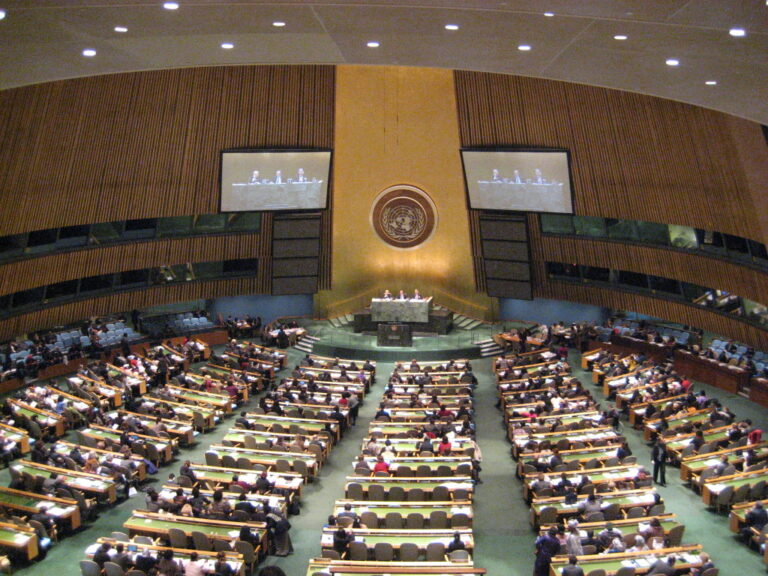Advancements in Biomedicine
At present, the scientific effort to decipher the human genome has borne fruit, and research in this area has heralded new prospects for medicine and ethics. It has us ask the question, what is biomedicine?
The unprecedented technological and informational capacity makes it possible to store and manage large volumes of genetic and phenotypic material. Today, just as social networks can access our most everyday data, biobanks have access to our genetic information.
A biomedical bank is defined as a repository for the storage of human-derived samples for use in national or international research within the field of biomedicine. These repositories are the result of medicine’s need for large, representative quantities of tissues, tumors, cells, proteins, DNA, and other materials in order to conduct research aimed at the development of drugs and treatments.
In turn, the advancement of techniques known as “omics” (for example, genomics) permits the acquisition of a large amount of data, which again necessitates more genetic material for comparative analysis and study. Collaboration between major international laboratories is increasingly prevalent, making the shipment of samples more frequent. This has rendered more exhaustive control over the transit of human biological material necessary.
Biomedicine at the Expense of Humanity?
Until now, the prevailing philosophical perspective in the field of bioethics has been of a liberal nature, positioning individual rights as the starting point. These include the principle of autonomy, as well as guarantees of prior, free, and informed consent, privacy, and confidentiality. The advances and objectives of scientific research often collide with these guarantees—especially those pertaining to privacy and confidentiality—which indirectly undermines the dignity of the human person.
The establishment of biobanks and the storage of population data require that public and collective interest (as is the case with the organic charters of national central banks) be taken into account beyond that of the individual. The genetic data of a human being not only pertains to the individual but also to their entire family and descendants. The breach of privacy would affect not just the individual in question but an entire familial group.
At the jurisprudential level, one may cite the case of S and Marper v. United Kingdom (2008) before the European Court of Human Rights. In that case, the United Kingdom had retained DNA data from individuals who had been arrested but not convicted. The European Court ruled in favor of the applicants, determining that the privacy and consent of these individuals were being violated. A precedent in favor of personal autonomy was established.
On the other hand, in 2014 in Argentina, the case of C., M. E., and others versus INCUCAI—the National Central Coordinating Institute for Ablation and Implantation—was concluded. The Argentine Supreme Court confirmed the unconstitutionality of seven articles of a resolution (No. 69/09) of the aforementioned institute, which did not permit the preservation of hematopoietic progenitor cells without donating them. A group of parents filed suit against the institute for the allogeneic use of these placental blood cells and umbilical cord blood, which prevented their autologous use. The Court, in this way, recognized the act as forced donation without consent, which in turn could lead to serious consequences, such as the disclosure of genetic information without prior notice.
Read WYA’s Declaration on Human Dignity and Bioethics
If Human Dignity isn’t at the Heart of Biomedicine, What Is?
Taking into account the cases mentioned we can understand through the Declaration on Human Dignity and Bioethics of WYA that the principal aim of medical and technological development is to uphold and elevate the value of every human life. Any practice that violates the intrinsic dignity of every human being goes against the main principle any doctor swears to hold after becoming a professional.
Biomedical practices must be carried out within the aforementioned ethical framework without losing sight of humanitarian objectives while discarding purely utilitarian and scientistic approaches. Both the World Youth alliance and the UN Declaration on Bioethics and Human Rights understand that every scientific development must be done regarding human dignity and with no other objective than protecting it.
The argument of solidarity presented at the beginning is also a fundamental pillar for any technological advancement. How can we express solidarity if it is not by respecting human rights? As long as we understand that every human right has its roots in the inalienable human dignity, solidarity will be its major outcome. According to the WYA Declaration on the Philosophy of Human Rights, we can understand that it is through each individual’s commitment to live in solidarity that these rights become a reality.
Fundamental Rights Must Not be Compromised
The advancement of biomedicine and genetic data management brings both opportunities and ethical challenges, particularly regarding privacy, consent, and human dignity. While scientific progress is crucial, it must not compromise fundamental rights. The cases discussed highlight the tension between innovation and ethical principles, emphasizing the need for a regulatory framework that safeguards individual and familial rights.
True solidarity in technological development requires respecting human dignity and ensuring that biomedical practices serve humanitarian goals rather than purely utilitarian interests.
Ethical science must prioritize human rights, reinforcing that progress should always uphold, rather than undermine, the intrinsic value of every human being. It is vital to understand that the sacrifice of the privacy and confidentiality of a human being and their family cannot be justified in the name of collective welfare, as some biobanks propose. Only if the common good is built upon the respect for each individual and their dignity, can it endure.
Read more about WYA’s continuing impact on the field of bioethics








